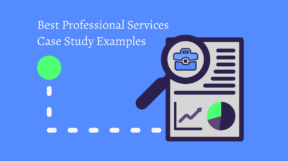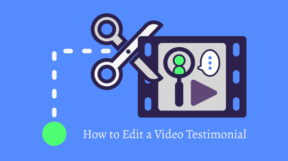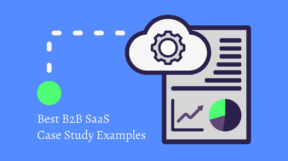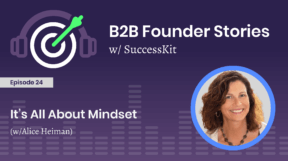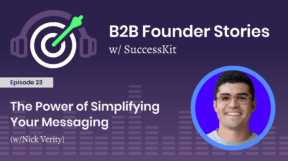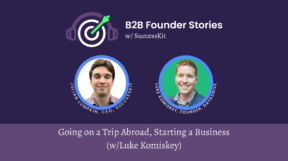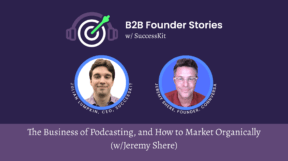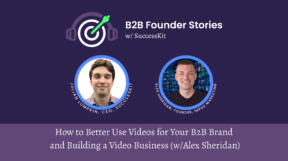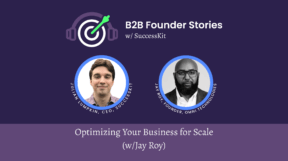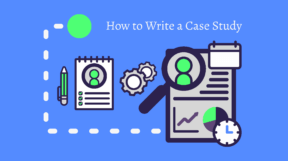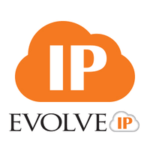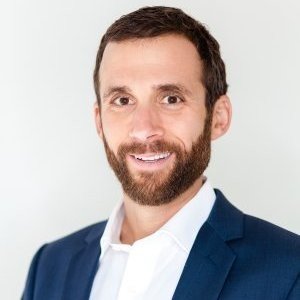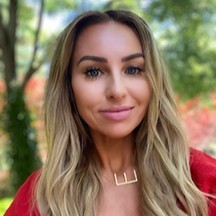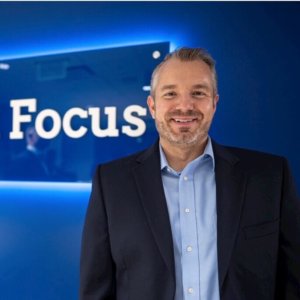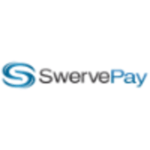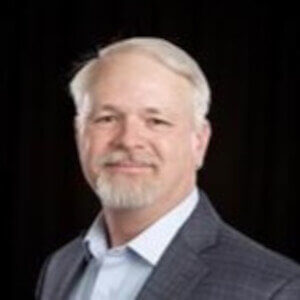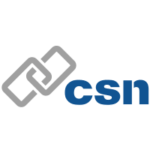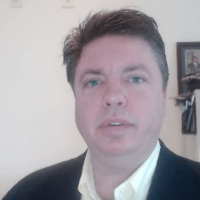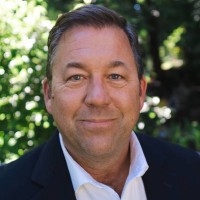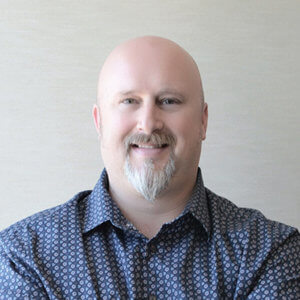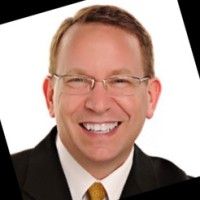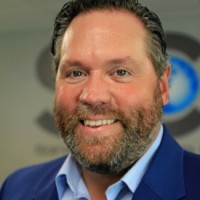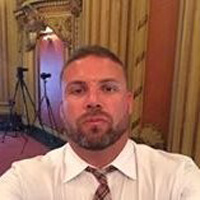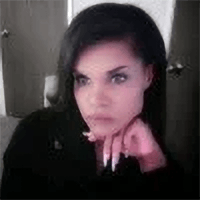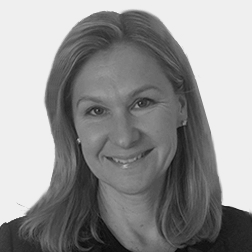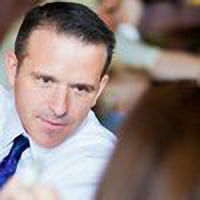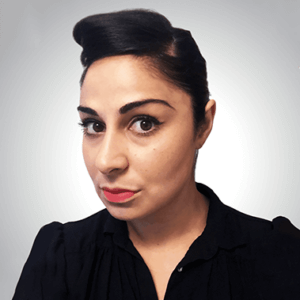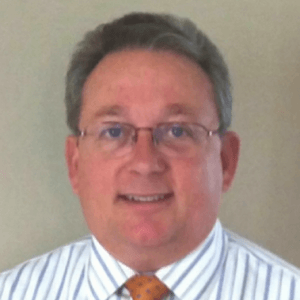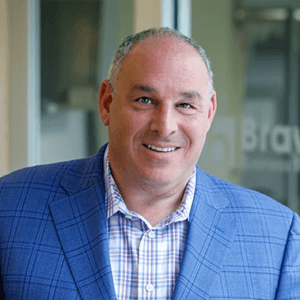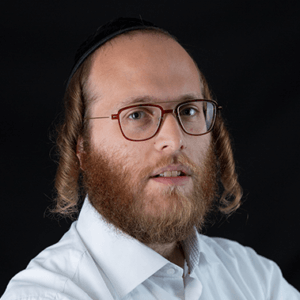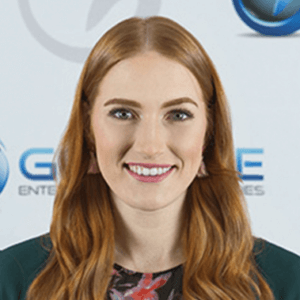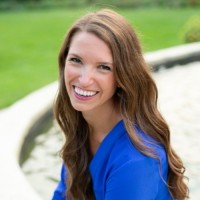Listen to this episode now on Spotify or Apple!
Welcome to the eleventh episode of the B2B Founder Stories podcast! Daniel Fernandez of AMZ Clever stops by to share his experience with investing in a business mastermind class and leaving a full-time job with a steady paycheck in pursuit of freelancing and solopreneurship. He also differentiates between good debt and bad debt; explains the importance of “playing all in” and trusting your gut feelings; identifies bold, unconventional methods of finding clients; and describes the emotional ups and downs involved with pursuing your dreams.
“I think most people should not go into business. I think as a business owner, as an entrepreneur, the number one thing is ability to perform under pressure and to deal with the pressure. And it’s been really difficult, and it probably will be difficult. The problems just change in magnitude—but I don’t break.”
Daniel Fernandez, Founder of AMZ Clever
Transcript of Podcast Episode 11: Investing in Yourself (w/Daniel Fernandez, Founder of AMZ Clever)
Julian Lumpkin: Welcome back to B2B Founder Stories with SuccessKit. In this episode, I interviewed Daniel Fernandez, who is the founder and CEO of AMZ Clever. This is one of my favorite episodes because we walk through his story from the very beginning, and as you’ll hear, his story of founding the company is very similar to mine. We discuss difficult decisions he had to make, personal sacrifices he had to make, investments he made in himself that appeared crazy from the outside but paid off, and his real take on what it looks like to start your own business, through his story and his advice to others. I hope you enjoy the episode as much as I enjoyed having this conversation. Daniel, thank you so much for joining us.
Daniel Fernandez: Hi, Julian. Good to be here.
Julian Lumpkin: Great. So, as a background, before we talk about what you’re doing now, can you give us the quick version of your background and your experience before you started what ultimately became AMZ Clever?
Daniel Fernandez: Yes. Yes. Couple of, I would say, events in my life. One is, I’m originally from Lima, Peru. I moved to the States around 2010 and immediately got to work in sales. And that took me to doing sales at Apple in San Francisco, in Silicon Valley. That was probably… I went from bottom of the food chain to, I would say, a pretty good place, and that set a precedent for getting me into, I would say, e-commerce, and then fast forward to being in an agency where I’m basically selling the time of myself and my team.
Julian Lumpkin: Nice. So, let’s talk about when you became a freelancer. So, you had some jobs at some nice fancy companies. What was it that led you to decide to go off on your own?
Daniel Fernandez: So, as I mentioned it, I had a very good job at a young age, and I had no reason for getting out of it. A friend of mine sent me a podcast. This is around 2014. It was one of the first big podcasts that started talking about Amazon, because my business is all about growing brands on Amazon. And this podcast talked about, basically, how the business model worked back then, which was very raw, very simple, compared to what it is now. And I got immediately hooked.
Daniel Fernandez: I still worked my job, but I followed the process, I did some learning, and launched a product myself. So, in the very beginning, started selling a product myself, and without any much experience, it did really well.
Daniel Fernandez: It sold out. You could call it a home run. So, at that moment, my eyes turned into dollar signs, and I decided to quit my job. And that must have been one of the most difficult things I ever did. Because I’ll tell you, Julian, it took me 10 minutes to write my resignation email; it took me an hour to hit send. I was just staring at the computer.
Daniel Fernandez: But eventually I did that and started growing this product. But very quickly, probably took just a couple of months, maybe two or three months, I realized that I was living in a very expensive city, and also a product business to pay yourself, to make a living out of it, takes a while because if you don’t reinvest that capital… You basically want to sell all your inventory, and then buy more inventory and add more products.
Daniel Fernandez: But if you’re living off of that too fast, then you eat that growth. So, that’s when I, early on, decided to make a shift. I joined a business. There’s a few other events that happened. I joined a business mastermind. It was quite expensive. I paid like $25,000 for a year. Best investment I ever made.
Daniel Fernandez: I decided to switch to service. I found my first clients there, and I found a lot of people that, to this day, are some of my best friends. Never looked back. From that moment, started doing this business as a freelancer, and then later on evolved to what it is now.
Julian Lumpkin: That’s really interesting. A couple follow-up questions. When you were considering leaving your full-time job, what was most scary about going off on your own at that point? Was it the economics of it? Were you worried about what your resume might look like? What were you really concerned about that made it… What was most difficult about making that transition?
Daniel Fernandez: I would say a big portion of it was economics. And I had done sales my whole life. I know that when you go in, when you do business, it’s not going to be a steady paycheck. So, it was a lot about, what if it doesn’t work? What if it’s not consistent? A lot of thoughts around that.
Daniel Fernandez: It was also really getting out of my comfort zone. And that moment said… There’s a few events in my life that I’ve taken very bold risks, but that was a pivotal one. To give you a sense, two years later I moved to China, just out of nowhere, and I failed. It had that same feeling, that same feeling, like what am I doing? Too late, when I was on the plane, to think about that.
Daniel Fernandez: But, I think it’s a cocktail of emotions. It’s the money, it’s will I be able to do it? A little bit of perhaps self-doubt. A little bit of also stepping into the uncertain. What if I just got lucky a moment ago, but if I’m not able to deliver that again?
Julian Lumpkin: I want to go back to another pretty bold move, in my opinion, that you took, which is to sign up for this $25,000 or so mastermind class. Because, I mean, that’s one thing for someone with a very established business to do, but to make an investment like that in yourself early on, I think, is really challenging and impressive that you’re able to do it. And I think a lot of people kind of know they would benefit from a program like that, but it’s so difficult early on to take the leap of making that investment. Can you walk us through how you thought about making that investment in yourself?
Daniel Fernandez: Yes, absolutely. And what I’m going to share, of course, is not financial advice. That was all debt. It’s all credit card. And I had basically been living off of my savings at that point. So, to join that mastermind, I first went to an event. And at that event, I met a guy, one of the speakers that I actually got to talk to afterward, that right now, he’s huge. He’s selling a lot of real estate stuff, and I think doing a lot of work with Tai Lopez.
Daniel Fernandez: He said, very simply, there is two types of debt. There’s good debt and bad debt. He got into more specifics. Bad debt is the debt that you use to buy things that don’t have really much intrinsic value, like an ice cream, or maybe clothing, or things like that. Good debt is, in a business, that is paying you cash flow, or real estate. I think he also said, yourself. If you’re paying to get education on a business that can pay you money, that is good debt.
Daniel Fernandez: And I also thought, and maybe we don’t have to go this route, but college, it’s, here in the US, tens of thousands of dollars, if not more, and there’s no refund policy. Right? You finish it, and if it didn’t work, nobody’s going to give you money back. Right? So I thought, right here, $25,000 and lots of success stories of what’s happening here, working with a few people that have done it.
Daniel Fernandez: No disrespect to any college professors, just I think a lot of times, it’s just teaching from theory, not from experience. So, I thought it made sense. And they also said, “If you’re going to do this play all in. Don’t just halfway do it,” which I liked and which I did. I went to all the meetings that were in person, and really, really got the most out of it.
Daniel Fernandez: I’ll tell you something. One friend I made from there introduced me to the owner of the company, and just for the sake of talking about money. That single connection represented probably half a million dollars over the following years. And how could I know that?
Daniel Fernandez: You know what’s interesting about this mastermind, that many people from there, right now, are having incredible businesses. And I don’t know how often this happens. I don’t know if so-and-so also started at a mastermind, and then there’s a huge success rate there or not, just something special happened. And that was based in San Diego.
Daniel Fernandez: But it was risky. It was all debt. But also, within maybe two to three months, I started making recurring revenue from that. And maybe not enough to pay it off, but it was a sign. It was some quick constructive feedback that was showing me that, yeah, if you just keep going, this can turn into something bigger.
Julian Lumpkin: That’s really interesting. And I think contrasting it, and thinking about it in terms of a college education, is a good way to look at it. I know when I started my business, and I had to make a pretty sizeable investment to get it started my thought process was, if it fails, this will be my MBA that I invested in.
Julian Lumpkin: And recognizing that a lot of people do make those investments in other ways somehow makes it a little bit easier. But it’s great, and I think what you’ve described is something we’re all kind of looking for, whether it’s a network or an event. Sometimes you go, and it’s a little stale, and it just doesn’t work. But then, there are these certain events or programs or groups that just really click and real connections are built. Real advice is given business deals are done.
Julian Lumpkin: And then, the investment is a home run. It’s at a 100x times your investment in the long run. But it’s so hard to know whether or not the next event or the next program you sign up for is going to have that magic.
Daniel Fernandez: Yeah, that’s right. And look, at that point, if we talk to a Wall Street person, they’ll just say, “This is crazy.” And right now I’m in a business is very data-driven, and we make a lot of rational, logical decisions, and all of that. But I think there’s moments in life where you’ve got to go with your gut. If the decision came from here, from the mind, from the brain, it would be no. But the gut feeling from the stomach, it told me this is the right thing to do.
Daniel Fernandez: And maybe that is also something similar when it comes to other areas of life. If I had thought about it for longer, I probably wouldn’t have done it. Because you can’t predict how the events will play out. I only knew… It was more of a feeling, actually. It felt that the people here were onto something great, and the people putting this together, they were already successful. And so, when I say gut, it’s really a feeling more than logic.
Julian Lumpkin: Yeah. It makes sense. I mean, that’s, I think, how many of the best decisions are made. So, I want to move forward a little bit. Okay. So, you take the course, you start to develop recurring revenue. And you’re still working on your own at that point. How long were you what is now called a solopreneur, or working on your own, before you started to grow the team?
Daniel Fernandez: Yeah. So, this must have been around 2017, 20… Let me think. Yeah, 2016. Sorry, 2016. And I got these initial few clients, and then I got out of California. I moved to the East Coast. And I got into a mode of business 24 hours a day, and I cut all my costs. I was eating the same every day. I was wearing the same every day. Just really keeping my mind to only make decisions, only think about business. Probably one of the lowest points, I would say, not because of the person, but because of what it meant to me is, I got out of California. I moved back with my mom. She offered to give me a free rent.
Daniel Fernandez: And for me, it was a huge blow to my ego. I was many times, “Why am I doing this?” And I really… times that I cried about it. I felt like a failure. But then had, I would say, the ability to also see that sometimes you take one step back to take two steps forward. And I needed that, because it allowed me to keep my expenses very low. Started getting a few clients.
Daniel Fernandez: But then, I set a goal that the moment I started getting, I think, I don’t know what it was, $2,000, $3,000 in the monthly recurring revenue, I will get out. I will get out of here. And, of course, I love my mom, and I appreciate everything that she did. It was not about that. It was more about me and my own success.
Daniel Fernandez: So, I did crazy things. I started listening to podcasts where people sponsor products, physical products, even like Joe Rogan, and so on. And I started taking notes of the companies that they were sponsoring, because I knew a few things. I knew these are physical products, and I knew that they’re spending money on digital marketing, on paid media. And I must have made a list of 50 to, I don’t remember, 50 to 100 companies.
Daniel Fernandez: And then I just started… I called, emailed all of them. And part of me thinking, this is not going to work. Who’s going to… It’s not even a work email. I was an Apple iCloud email. But people got back to me. I picked up clients from that, that to this day, actually, I think, are clients. And that was all by myself.
Daniel Fernandez: Here’s another thing, Julian. I knew a lot about Amazon, but there was a lot more to learn. So, another bold move there was, what would it look like if I got paid to learn? And if I can’t figure it out… I’ll save the money that they’re paying me. If I can’t figure it out, I’ll just give you back. But if I can figure it out, how to do the project, then I will keep the money and I will learn the skill.
Daniel Fernandez: It was just very, very much common sense, and risky, but that’s what I did. And I did figure out on my own. And so, I started building some systems for my own… Not thinking expansion, or hiring people, just if I’m going to be doing… For example, a lot of what we do is advertising, and when you do advertising, you have to make reports and visualize the data that you’re getting.
Daniel Fernandez: I needed to do that a few times a week, so I decided to make a process on just how to do that more faster and more smoothly. So, I did that. Fast forward, I hit that revenue goal. And a friend of mine, this friend is one of my best friends. He is incredible at networking. I think I’m decent, but the type of person that they tell you, one day you meet him on a weekend and say, “Hey, I met this and this and this person.” This person is a billionaire. And you are like, “How in the world did you do that?” It’s the type of person that when he goes to a new city, he reaches out to people on LinkedIn that he doesn’t know, and he sets up meetings.
Daniel Fernandez: So anyway, this friend was living in China, in Beijing. And all of a sudden, he calls me or sends you a message saying, “Hey, I met someone that wants to hire you over here in China, wants to bring you over and do a consulting gig for them. It’s an Amazon-selling brand.” Out of nowhere, right? That is an interesting call.
Daniel Fernandez: So, I said, yes. I said yes. And that was around 2016. They paid my travels, my stay. I went for three weeks all the way to China, and that was very uncomfortable, too. It was great, but uncomfortable too, because I went from working with small companies, more like over Zoom, over the phone, to being at an office with must have been like 80 people, and they all looked at me as the expert. And I started doing training there. It was also about Amazon.
Daniel Fernandez: So, of course, before deciding to do that, I had a lot of thoughts. What if I don’t do it well? What if I embarrass myself? But my self-confidence was greater than not. So, I ended up doing it. And I found a little bit of a niche for me, like the Western guy in China that is helping brands there on Amazon. I thought I would work with a lot of Chinese brands.
Daniel Fernandez: In the end doing this got me a lot more Western clients, and these were brands that had people in China, or that were going to China periodically for all kinds of things. So, I did that gig, came back, I actually went back again for the Canton Fair, which is a trade show that happens in China every year, to learn and also to network. Came back, and that’s when I decided to move.
Daniel Fernandez: And I got to China, and I continued basically growing my book of business. At that point, it was probably around $10,000 a month, and that’s when I… At the beginning, I had more time than money. At that point, I had more money than time.
Daniel Fernandez: So, to me, that was… I always kept hearing people hiring VAs in the Philippines and decided to give that a shot and started hiring… Hired my first virtual assistant, that to this day, works in my company, as a person that has developed, has grown a lot.
Daniel Fernandez: But, yeah. So, I like to break it into phases. The first phase was pre-revenue, figuring out, really, what service, what niche, who your audience is, why you’re selling, how you’re doing it.
Daniel Fernandez: Then next phase is, once that is figured out, is doing it yourself. And then, I was just entering the next phase, which is doing it yourself with help, with assistance, so that you can get more clients, basically get more revenue.
Julian Lumpkin: Yeah. It’s really interesting. And people who listen to my podcast will know that our stories are remarkably similar, from leaving a nice sales job in a nice city, to moving home with the parents to start the business, to the different investments and risks I made. So, I know where you’re coming from, and I really appreciate the way you shared it. We’re coming up towards the end of our time, so tell us where AMZ Clever is now.
Daniel Fernandez: Yes. So, fast forward from that phase of doing the work with help of assistance. There’s a lot of in-between, but got to the point where I started hiring people to do the work, and me managing them. And there’s a lot of stuff in there, maybe in a part two, we can unpack.
Daniel Fernandez: But then, from that phase, I got to the phase where I’m now, that is I manage managers that manage the people that do the work with the help of assistance, right? So, it’s four layers deep. And I know there is a lot more where I need to grow and get to, but that’s where my agency is. I have about 25 people in different parts of the world, and last year we broke seven figures.
Daniel Fernandez: And my role has changed a lot. Almost like, “I didn’t sign up for this.” Luckily, I like it. I like the different role that I have now, a lot of just managing people, and creating structures, and taking care of the vision, and sales and marketing, and so on. But, that is where we are at. And the goal is big. I want to get to eight figures. I want to build this as a corporation that will uplift me, and it’s something that adds value to the marketplace, not just a quick gig that happened between the years of so-and-so.
Julian Lumpkin: Awesome. And yeah, we should certainly do a part two about what goes into moving from hiring a couple assistants to getting to 25 full-time employees. But as we wrap up here, I just want to end with some just super more rapid-fire questions about what your day-to-day is like now. So, what do you spend most of your time doing now?
Daniel Fernandez: Right now, about half of my time is in sales and marketing. We grew a lot of our referrals, but at the size that we are right now, referrals are not predictable. So, a lot of doing content, a lot of sales goals, and doing things in a sales environment. The other half is working very closely with my managers, and a little bit is with systems and structures for the business.
Julian Lumpkin: What is your favorite part about owning a small-to-medium size business, as you do now?
Daniel Fernandez: Favorite part. There’s different scales for this. There is something very rewarding when somebody in your team that was maybe not so confident, or raw talent, and then two years later see what they’ve become. And to know that they put in the work, and it was your guidance, you polished that person into what they are now, that is a very rewarding feeling. It’s worth more than, I think, in some ways, the money.
Julian Lumpkin: Awesome. And final question or set of questions. Do you often encourage people to go into business for themselves, or are you more talking about how difficult it is? Do you find yourself being a voice telling people, “Go do this. Give this a try,” or do you find yourself giving more cautionary advice?
Daniel Fernandez: I think most people should not go into business. And let me tell you why, and we can discuss where this comes from, but I think as a business owner, as an entrepreneur, the number one thing is ability to perform under pressure and to deal with the pressure.
Daniel Fernandez: And it’s been really difficult, and it probably will be difficult. The problems just change in magnitude. But I don’t break. Because I work with other business owners, clients, I see people break often. And to me, that’s a sign of something is lacking. And we can talk about other things, like people going to business thinking they’ll be free. I think that’s not true for a long time. So, it depends also on the reasons people do it. At the same time, there’s this factor that if you knew how difficult it was, probably you wouldn’t do it. Probably that would deter a lot of very big entrepreneurs today.
Daniel Fernandez: So, I would answer your question from those different angles. There is also obviously the money. Especially when you’re a freelancer, I’ll tell you, the money’s better, but you are limited. And also, you cannot take a vacation. Later on, as you scale a team, leaders eat last, right? If you really want good people, there is, I think, a decision there to be made.
Daniel Fernandez: So, in fact, it’s often, I think, common that people on the team make more money than the owner. If this explodes and becomes ultra-successful, that’s where the owner will see, I think, financial freedom, when it comes to small business. So, if a small business makes it to that medium-size business, I think that’s where the harvest can happen.
Daniel Fernandez: My mindset is, re-invest 100% of the profits. Why hinder the business? An owner that works at a company, in my opinion, should make a paycheck. And then if your vision is to grow this bigger and take care of your team, no distributions way until the business can really sustain it.
Julian Lumpkin: Yeah. The last comment I’ll make here, like I’ve said, our stories are pretty similar in a lot of ways, and it’s interesting. And I want to thank you for sharing it, because it’s really awesome for me to hear, as someone who’s kind of a couple years behind where your company is, but moving in that direction.
Julian Lumpkin: But as we talk about all these challenges and learning not to break, and deal with it, I’ve always said that my sales career really prepared me, I think, as best as any career, for being an entrepreneur. Because as a sales rep, in many ways, you are your own little business owner. And I felt the ups and downs became a lot more intense when it was my own company, but learning to manage a quota, and have a quota over quarters and years, for me, I think, was the best thing that could prepare me for running a small business.
Daniel Fernandez: I 100% agree with that. It’s a similar feeling. Just gets intensified, I think.
Julian Lumpkin: Well, we’re over the time allotted here, so once again, really appreciate you coming on and share your story. And I’d love to either catch up just one on one, or do a second episode of the podcast, because I think we have a lot more we could discuss.
Daniel Fernandez: Sounds good. And I think soon you’ll be here in Florida, so there’ll be, I think, a chance for us to meet face to face.
Julian Lumpkin: That sounds great. Thanks, Daniel. Thanks for listening. I hope you found this episode valuable. If you did, I would encourage you to share it with an aspiring entrepreneur, or an entrepreneur that you know. On that note, I love interviewing people who have stories of founding companies, so if you or anyone wants to share your story, reach out to me directly at [email protected]. That’s [email protected].
Conclusion
Subscribe to the B2B Founder Stories podcast on Spotify and Apple and never miss an episode!
If you have an idea for a future topic you’d like addressed or if you’d like to be a guest on the series, contact Julian via the form on our Learn More page.
![Featured image for the post titled "Investing in Yourself (w/Daniel Fernandez) [PODCAST]"](https://successkit.io/wp-content/uploads/2022/08/successkit-podcast-episode-11-daniel-fernandez.png)



